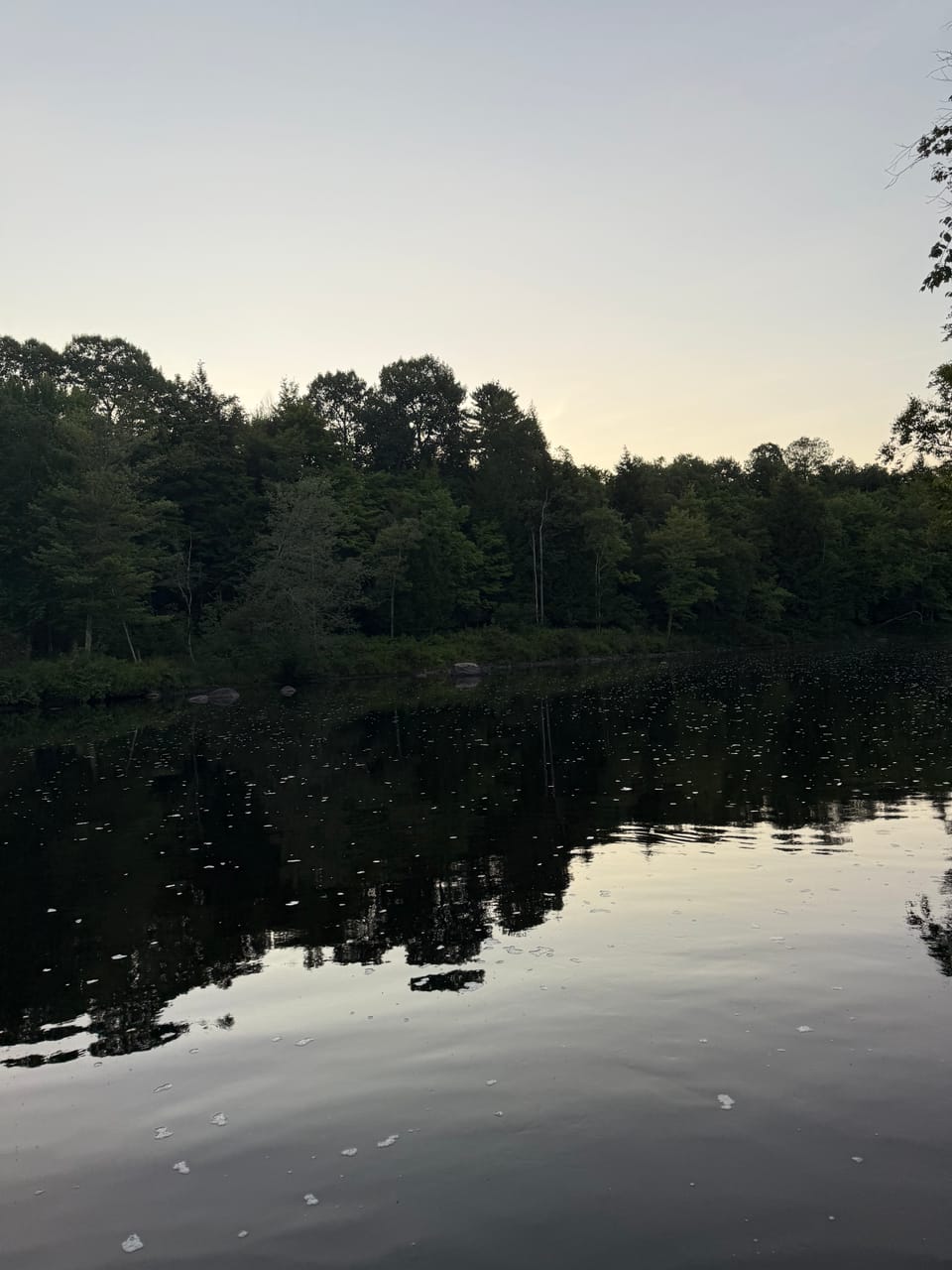We Remember, and Tremble

Thursday Nights in the Chapel
On Thursday nights from 10-11 PM, you'll find me in the Adoration Chapel of St. Joe's in Lake Orion, Michigan. Lately, I've been leaning more toward Lectio Divina during this time as I feel the Lord has called me into less "structured" prayer than what I had previously been doing. I prefer the Daily Mass readings for lectio because, in my experience, God's Word has a daily message for us in at least one of the Scripture selections, and Holy Mother Church has provided us with the Liturgical calendar so we might receive that message.
Old Testament Flatlines (Or So It Seems)
I rarely find the focus of my lectio to be the Old Testament reading. It's nothing personal - my favorite Scripture is found in chapter three of the Book of Exodus. I just don't find the OT readings as compelling or relatable as Gospel readings or a few lines from the day's psalm.
Yesterday's OT selection told the story of the nation of Israel's miraculous crossing of the Jordan River, and the passage is written so as to evoke their crossing of the Red Sea. While the reading from Joshua initially fell a bit flat for me, the more I read it, the more my prayer began to move and take shape around it.
The Oswegatchie and the River Tax
I recently returned from vacation in the Adirondack region of Upstate New York. I left home with my backpack bursting with books, materials, and my laptop, prepared to channel some of my writing heroes in letting a healthy dose of nature stoke the creative fires. Instead, my family and I spent time searching for waterfalls, making the three-hour trip to Lake George and Glens Falls (where Ft William Henry of Cooper's "Last of the Mohicans" still sits, and where my dad is from), and fishing a low, slow section of the Oswegatchie River.
Fishing a river can be challenging at the best of times, but this stretch of the Oswegatchie was particularly brutal. Upstate New York was in need of rain; this summer has been considerably warmer than usual, and the water is clear. Given that it's been about the same amount of time since I last had a rod in my hand (25 years, give or take) and my last visit to the Adirondacks, I donated many lures as I paid the "river tax".
However, I ventured into the water to retrieve those that I could. This seemed an easy task from shore; I could see my lure floating lazily under fallen trees or hooked into thick aquatic vegetation, and in many places the river was one or two feet deep. Yet each time I ventured into the cool water, I questioned the wisdom of my decision, as well as my ability to navigate the river bottom.
River rocks are slippery as ice and hard on bare feet. Below the water are scuttling crayfish, while enormous spiders cover partially submerged boulders that would make for a convenient hand or foot-hold, were it not for their arachnid occupants (who do, in fact, bite). The entire venture is like navigating a balance beam covered in oil, with no mats flanking you in the event you lose your balance.
Crossing With Eyes Wide Shut
As I slowly read about the Israelites crossing the Jordan after God held back its waters, I considered my experience on the Oswegatchie. Crossing a river, even a late-summer iteration, may sound easy. I believe our reading of Scripture often suffers from a two-fold problem.
One issue is that we have the entire story in front of us. Even if you aren't especially familiar with the details, you probably have a general knowledge of major events and concepts, all of which broadly indicate that God is capable of miraculous works. You may not know the precise details of the Exodus from Egypt, but you know who "wins" in the end. You might not be able to recall each healing during Jesus' ministry, but you know that those who approached the rabbi with faith were sent away whole. This foreknowledge of the flavor of Scripture can foster a sense of expectation, of knowing that God is up to something, that it's probably miraculous and well outside our understanding, and that it is for the best.
The second problem is one of familiarity. When you hear the same stories year after year, and if you're spending time in God's word outside of Mass (as you should be), Scripture can start to feel like watching a rerun. The sense of awe at events like the Ten Plagues of Egypt or Jesus calming the storm diminishes, and we lose sight of just how powerful, how thoroughly sovereign, God is and how little control we truly have.
The Film Over the Heart
These two issues can combine to form a kind of film over the eyes of our hearts and spirits, and reading Scripture through that film causes God's Word to lose some of its punch and novelty. We often forget the brutality of traveling with a family during the Exodus, unless we are reminded of the difficulties of traveling with our own family. We sympathize with fishermen returning to shore empty-handed until we remember the time we lost our job and, with it, the certainty of a paycheck, and suddenly, empty fishing nets are more than a detail in a story. We hear the story of the Nativity, but do we marvel at the reality of giving birth outside of a modern medical facility? Does our familiarity with Scripture and expectation of God's greatness dilute the mighty works contained in His word?
The Earth Trembled at His Presence
The psalm selection for yesterday's reading was Psalm 114, and it contains a theme found often throughout the psalms. It speaks of the earth trembling at the presence of the Lord and of His sovereign power over His creation, and it directly references the day's Old Testament passage from the Book of Joshua. David often references God's power and how the natural world responds to His presence. Like his ancestors, David spent time in the wilderness and would have been well acquainted with the natural world in all its perilous wonder. His writing follows the age-old advice given to every scribbling fiction writer: "Write what you know." David knew God, and he knew God's world, and the psalms reflect those core truths.
Remember Who God Is
It is important that we do not allow familiarity to breed complacency in our relationship with God, His Church, or His Word. While we should strive to be a "friend of God", as David was, we must know that Scripture is not merely stories and God is not a wizard. We must recall the reality of the Eucharist and the Confessional and approach them with the awe they are due. We must remember that every word of the Creed is written in the blood of centuries of martyrs. We must recall that the tabernacles in our churches house the same God whose presence in the Ark stopped rivers, parted seas, and decimated armies.
We must remember who God is and tremble because of it.





Member discussion